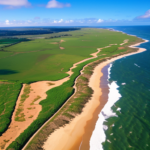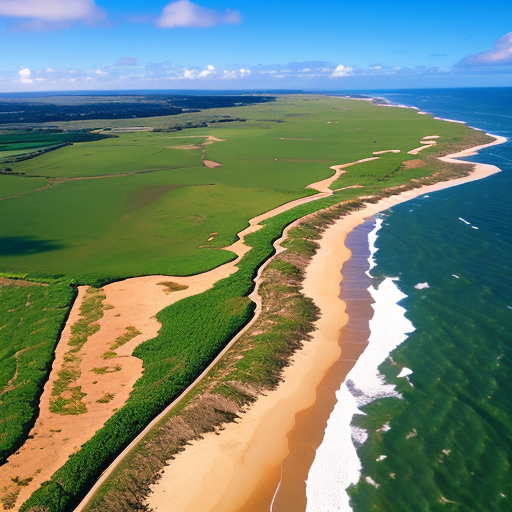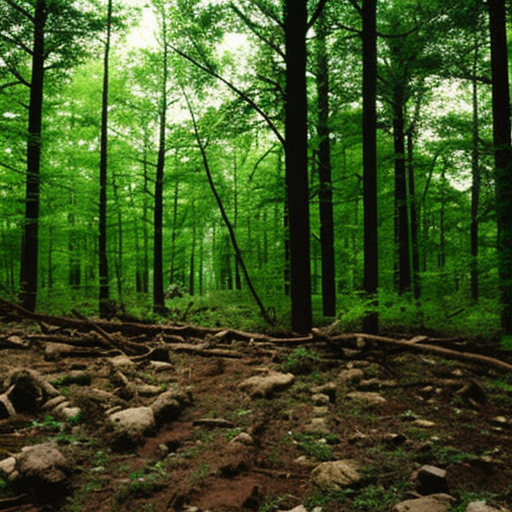Summary:
Coastal studies encompass a wide range of scientific disciplines that focus on understanding and managing coastal environments. These studies examine the physical, chemical, biological, and geological processes that shape coastlines, as well as the impacts of human activities on coastal ecosystems. By studying coastal areas, scientists can gain insights into climate change, sea-level rise, erosion, pollution, and the conservation of marine biodiversity. Coastal studies also play a crucial role in informing coastal management strategies and policies to protect and sustain these valuable ecosystems.
Physical Processes:
Coastal studies investigate the physical processes that shape coastlines, such as waves, tides, currents, and sediment transport. Understanding these processes is essential for predicting and managing coastal erosion, which threatens infrastructure and habitats. Scientists use tools like computer models, remote sensing, and field measurements to study how waves and currents interact with the shoreline and how sediment is transported along the coast.
Chemical and Biological Processes:
Coastal studies also examine the chemical and biological processes that occur in coastal ecosystems. These processes include nutrient cycling, primary production, and the interactions between organisms and their environment. Scientists study the impacts of pollution, such as nutrient runoff and oil spills, on coastal ecosystems and work towards developing strategies to mitigate these effects. They also investigate the role of coastal ecosystems in carbon sequestration and the potential for coastal habitats to act as natural buffers against climate change.
Coastal Geology:
Coastal geology focuses on understanding the geological history and processes that have shaped coastal landscapes. Scientists study the formation of coastal landforms, such as beaches, dunes, cliffs, and estuaries, and investigate how these features change over time. They also examine the impacts of sea-level rise and climate change on coastal geology, as rising sea levels can lead to increased erosion and coastal flooding.
Coastal Biodiversity:
Coastal studies play a crucial role in understanding and conserving coastal biodiversity. Coastal ecosystems, such as mangroves, salt marshes, and coral reefs, are highly productive and support a diverse array of species. Scientists study the distribution and abundance of coastal species, as well as the ecological processes that maintain biodiversity in these habitats. They also investigate the impacts of human activities, such as overfishing and habitat destruction, on coastal biodiversity and work towards developing conservation strategies to protect these valuable ecosystems.
Coastal Management:
Coastal studies provide valuable information for coastal management strategies and policies. By understanding the physical, chemical, and biological processes that shape coastlines, scientists can help predict and mitigate the impacts of coastal hazards, such as storms and sea-level rise. They also provide insights into the sustainable use of coastal resources, such as fisheries and tourism, and work towards developing strategies to minimize the impacts of human activities on coastal ecosystems. Coastal studies also inform the design and implementation of marine protected areas and other conservation measures to safeguard coastal biodiversity.
In conclusion, coastal studies encompass a wide range of scientific disciplines that focus on understanding and managing coastal environments. These studies examine the physical, chemical, biological, and geological processes that shape coastlines, as well as the impacts of human activities on coastal ecosystems. By studying coastal areas, scientists can gain insights into climate change, sea-level rise, erosion, pollution, and the conservation of marine biodiversity. Coastal studies also play a crucial role in informing coastal management strategies and policies to protect and sustain these valuable ecosystems.












